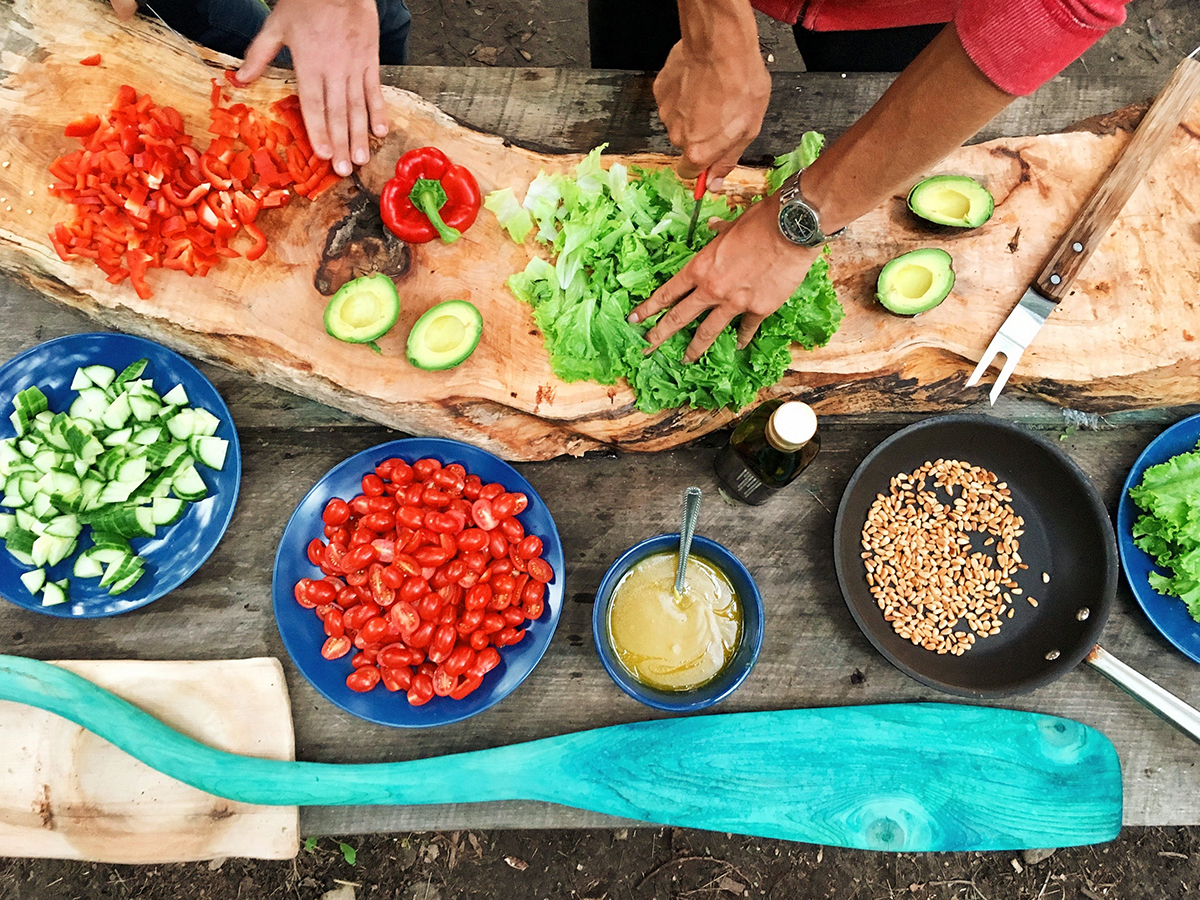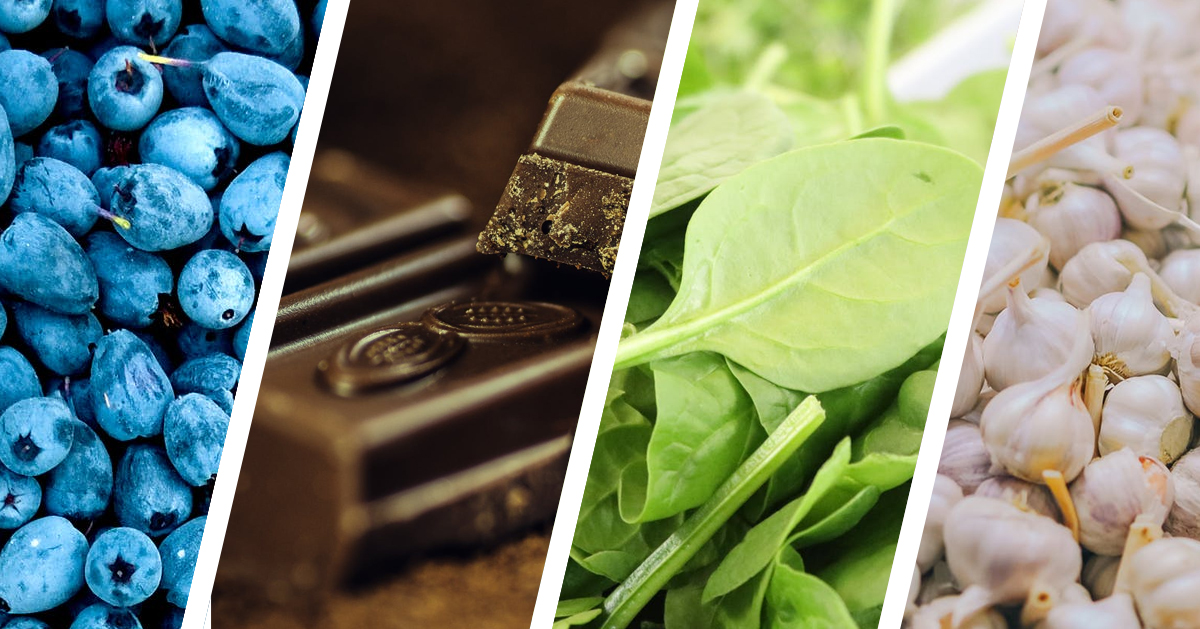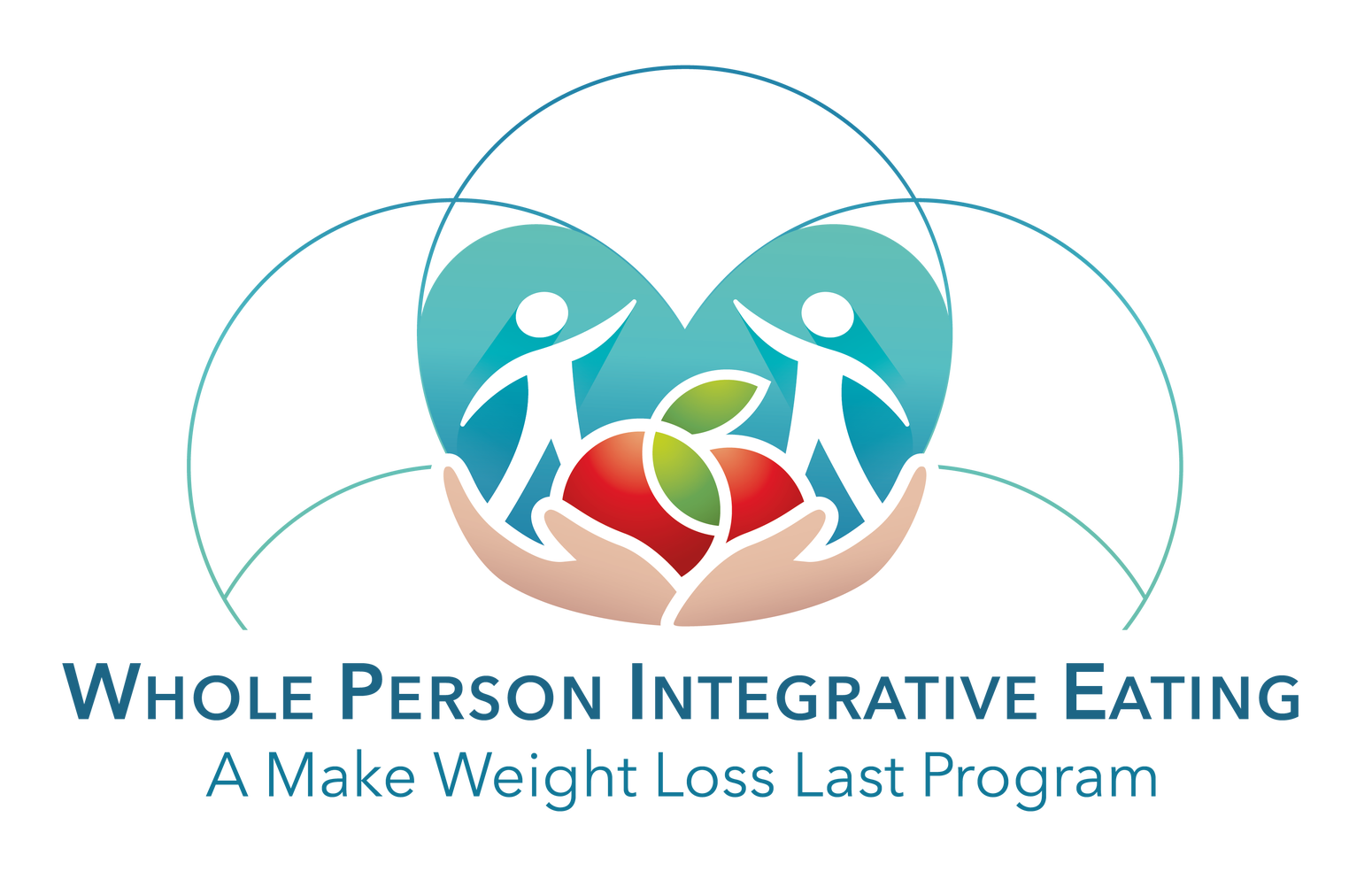Stop Stress Eating with These 3 Simple Steps
Do you often eat as a reaction to stress, anxiety, and other unwelcome feelings? Do you turn to high-fat, sugary “comfort foods” to cope with negative emotions? Discover why you stress eat in the first place, why it works, and some simple steps for doing some damage control.
Some say it’s “stress eating.” Others call it “self-medicating.” Psychologists describe it as “emotional eating.” Whatever words are used, if you often (over)eat to self-soothe negative feelings such as boredom, stress, anxiety, or anger—in other words, for reasons other than hunger and having a healthy appetite—it’s likely you’re a stress eater. Not only does stress eating increase your odds of overeating, my own original research on overeating reveals that Emotional Eating is the #1 predictor of overeating and becoming overweight or obese.1,2
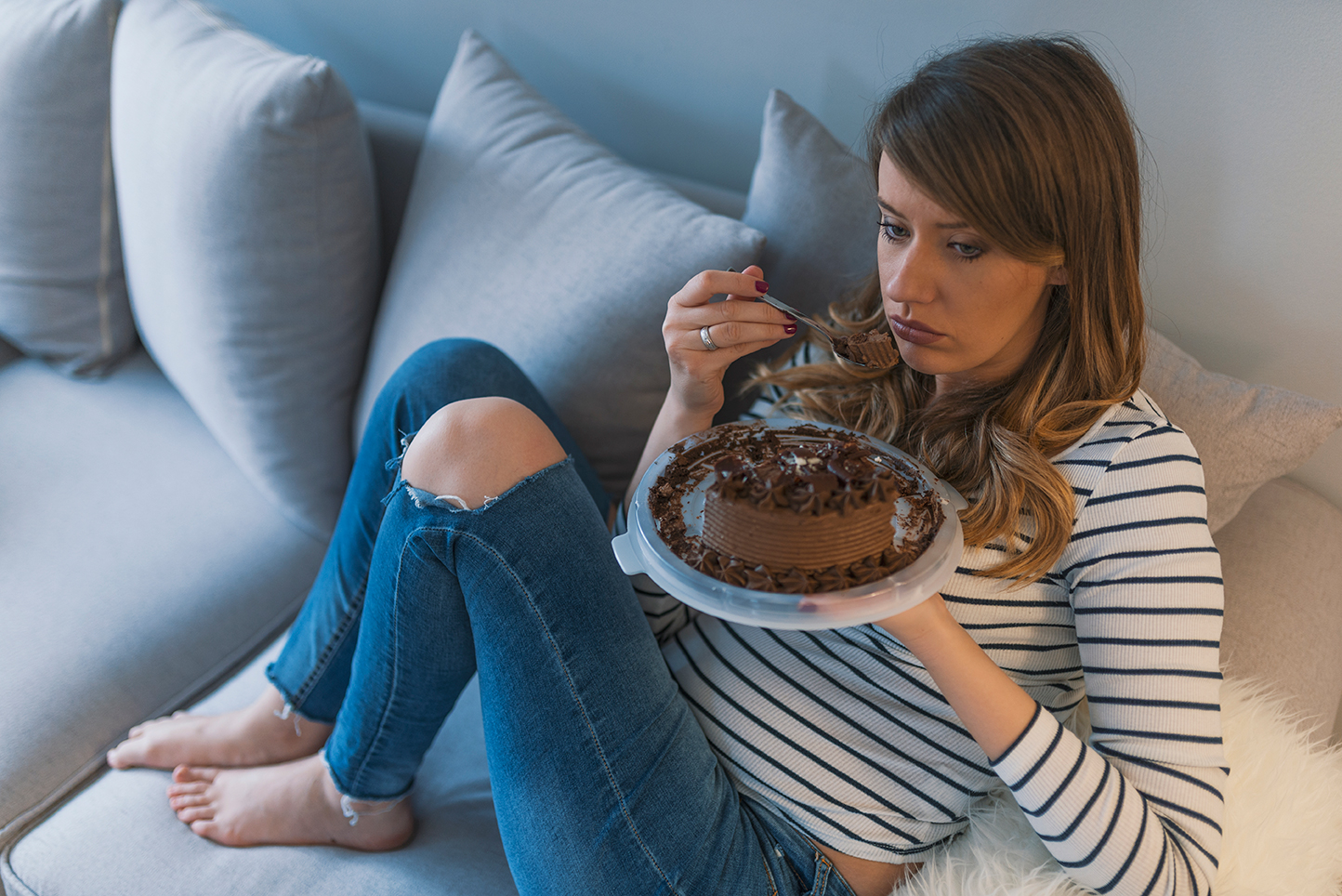
Here’s what stress eating might look like:
For Ann, stress-related overeating episodes often start after work, especially when she’s on deadline with a large project. First, she visits her local supermarket to buy a bag of potato chips, a pint of her favorite ice cream, and a bar of creamy dark chocolate. Then she heads home, changes into comfortable clothes, and turns on the TV. Settling into bed surrounded by her favorite comfort foods—and sometimes, a glass of red wine—Ann begins what she describes as “zoning out”—eating until she feels calmer—often to the point of falling in and out of sleep well before bedtime.
All the while, Ann remains vaguely anxious and distressed about her workload, and dependent on food to manage her darker moods. And she’s concerned her stress eating is keeping her overweight. At the same time, on a not-quite-conscious level, she senses the chips and chocolate allay her anxiety in some way. And she’s right: High-sugar, high-fat, high-carb food (products) do indeed relieve emotional tension. Here’s why.
The Food-Mood Connection
The idea that the food you eat can actually medicate your mood and vice versa—that your mood may motivate you to make certain food choices—was given the scientific stamp of approval in the 1970s when Judith Wurtman, PhD, a scientist at the Massachusetts Institute of Technology, uncovered a fascinating facet of the emotional eating enigma. Call it nutritional neuroscience, psychoneuroimmunology, or the study of food and mood, Wurtman launched a new field of nutrition research that has confirmed what many of us know intuitively: what you eat affects your mind and mood, your tendency to pile on pounds, even the quality of your life.
What Wurtman discovered is this: About twenty minutes after you eat a carbohydrate-rich food (such as bread, potatoes, cookies, or cake), your brain releases a naturally occurring substance called serotonin; in turn, you feel more relaxed and calm. Want to feel more perky? Consume a lean, high-protein food such as fish, and the substance that’s released (norepinephrine) lets you feel more awake and energetic (unlike the kick you get from caffeine, you’re not stimulated, just more alert). And certain fats in food end up as endorphins—substances in the brain that produce pleasurable feelings.3 More recent research, specifically on stress eating, reveals that women under stress experience strong sugar cravings that lead to overeating high-carb, high-sugar foods.4
The Food-Mood Syndrome: It Can Be a Vicious Cycle
Here is where the food-mood link really gets interesting. Since Wurtman’s discovery about the food-mood connection, we also know that the sugary, sweet, or crunchy and fried processed food products that emotional eaters most often choose to get a serotonin high actually contribute to deficiencies in certain vitamins and minerals that can cause your emotions to plummet, leading to a serious case of the doldrums.
In this way, the food-mood syndrome can become a vicious emotional cycle. You’re feeling down, so you reach for, say, a prepackaged brownie. Sure, the brownie’s sugar and white-flour carb content will soothe and calm you, but its high sugar content has a hidden side effect: it actually depletes some nutrients that could help combat depression. In other words, the sweet concoction may somehow soothe your soul, but isn’t it ironic that at the same time, it may also contribute to anxiety, depression, and other unpleasant emotions?
3 Smart Steps to Stop Stress Eating
Want to get the mood-calming, feel-good benefits of serotonin without the vitamin and mood-robbing downside inherent in high-sugar, highly processed foods? Here are three smart, simple, proactive steps you can take to curtail stress-related overeating episodes—without the downside.
Be “B” wise. From dreary doldrums to a deeper depression, various B vitamins—including B1, B2, niacin, folate, and B12—can help you bust the blues. But most B-family relatives are processed out of refined foods, such as white flour. To help defeat depression, “B” wise and consider some especially good B-abundant blues busters found in unprocessed, unrefined grains (oats, millet, brown rice, etc.), fruits, vegetables, beans, nuts, and seeds. Consuming vitamin B–rich greens such as spinach are especially good for overcoming overeating.
Shake the sugar habit. Consuming a lot of refined white sugar both damages and destroys B vitamins in the body; in this way, it contributes to deficiencies. Cut down on, or eliminate sugar from your diet, and depression often lifts—although why this is so isn’t well understood. One theory is that the “high” a person derives from sugar is due to elevated glucose (blood sugar) and feel-good endorphins, which produce feelings of relaxation and euphoria. Conversely, when a diet is low in sugar and high in B vitamins, levels of B vitamins, glucose, and endorphins remain stable, reducing odds of depression.
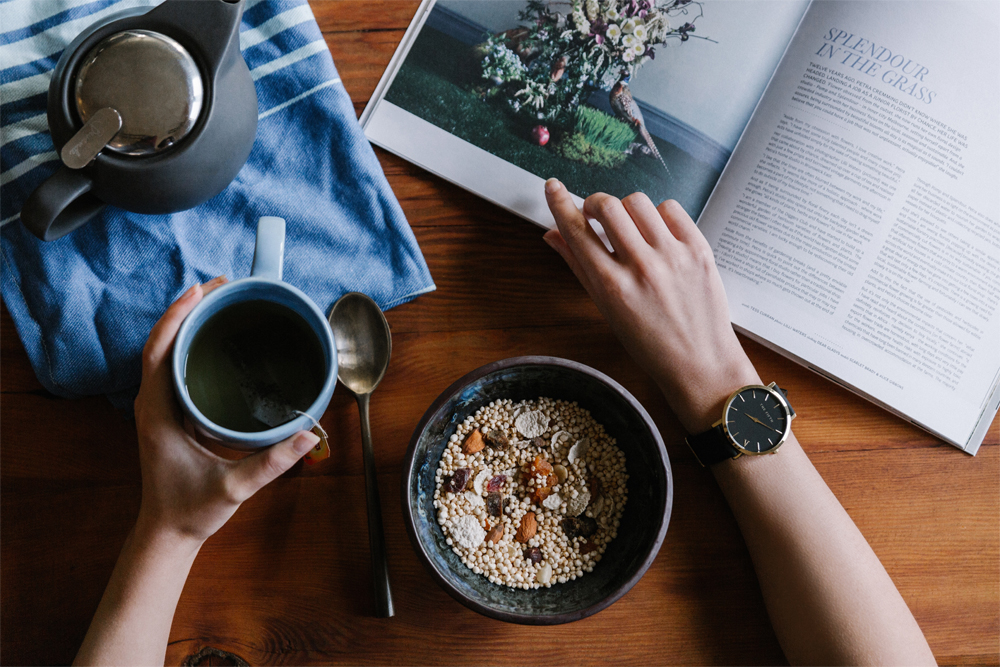
Sip some tea. Consuming too much alcohol to relax and de-stress can cause the loss of certain B vitamins—and deficiencies of vitamins B6 and niacin, especially, can bring you down. Not only does excessive alcohol consumption reduce the absorption of B vitamins, but it also contributes to protein and mineral deficiencies. The operative words here are “too much” and “excessive,” meaning, the tipping point is different for different people. Consider this: In place of wine to de-stress, try sipping some soothing herbal tea.
Stopping Stress Eating
The science that studies nutrients in the foods we consume, and the way they influence our brain chemistry and emotions, provides a peek into how food and the mind and body work together. By being aware of whether you “feel” like eating to assuage stress or to appease a healthy appetite, each food you choose to eat may be looked at as an opportunity to fine-tune your moods and emotions, while nourishing your body.
In other words, the key to being a success at stopping stress eating is making a commitment to eating for feel-good feelings, when you have a healthy, authentic appetite for food, and when you’re anticipating the pleasure and experience of true mind-body nourishment.
Article originally printed on integrativeeating.com. Reprinted with permission from Deborah Kesten.
Deborah Kesten, M.P.H., is an award-winning author, specializing in preventing and reversing obesity and heart disease. Her expertise includes the influence of epigenetics and diet on health, Lifestyle Medicine, and research on the Whole Person Integrative Eating dietary lifestyle to treat overeating, overweight, and obesity. She and her husband, behavioral scientist Larry Scherwitz, Ph.D., collaborate on research and writing projects. Her latest book, “Whole Person Integrative Eating” was named the “Winner” in the Health category by the 2020 Book Excellence Awards.
References:
- Larry Scherwitz and Deborah Kesten, “Seven Eating Styles Linked to Overeating, Over- weight, and Obesity,” Explore: The Journal of Science and Healing 1, no. 5 (2005): 342–59.
- Deborah Kesten and Larry Scherwitz, “Whole Person Integrative Eating: A Program for Treating Overeating, Overweight, and Obesity,” Integrative Medicine: A Clinician’s Journal 14, no. 5 (October/November 2015): 42–50.
- Judith J. Wurtman, Managing Your Mind and Mood through Food (New York: Rawson Associ- ates, 1986).
- Danielle Marques, et al, “Sweet craving and ghrelin and leptin levels in women during stress” Appetite, Vol 80, September 1, 2014, 264-270.

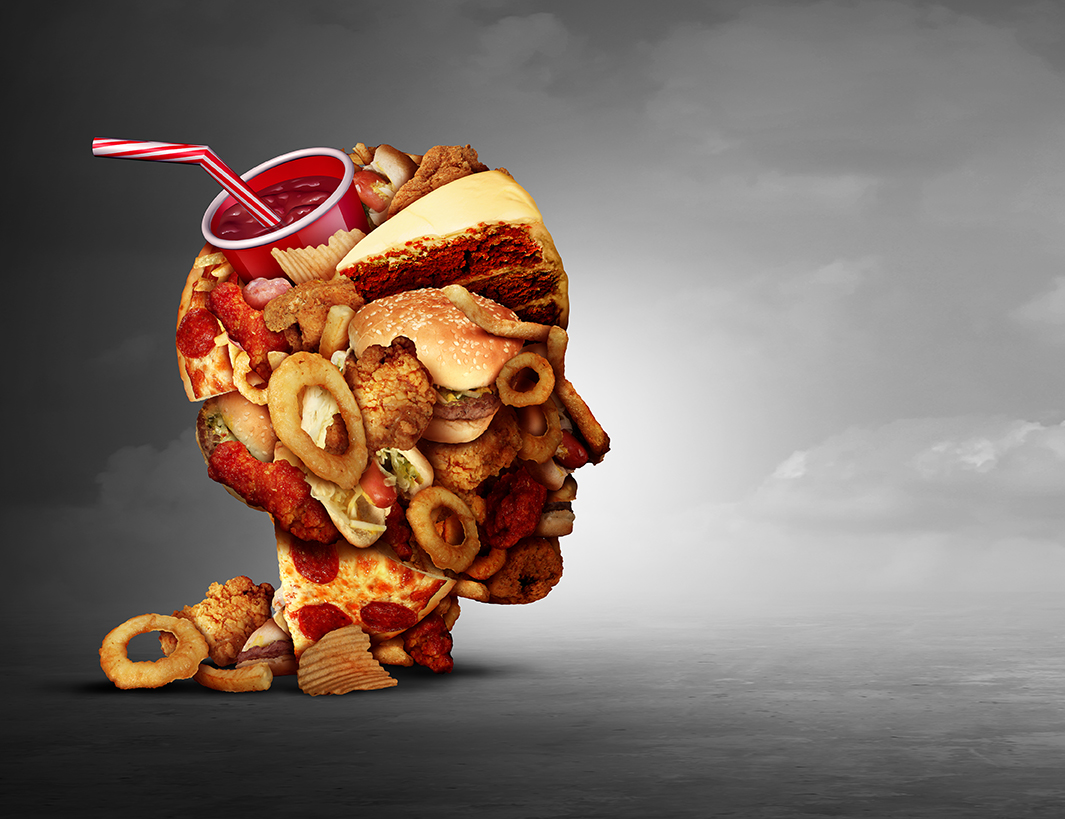
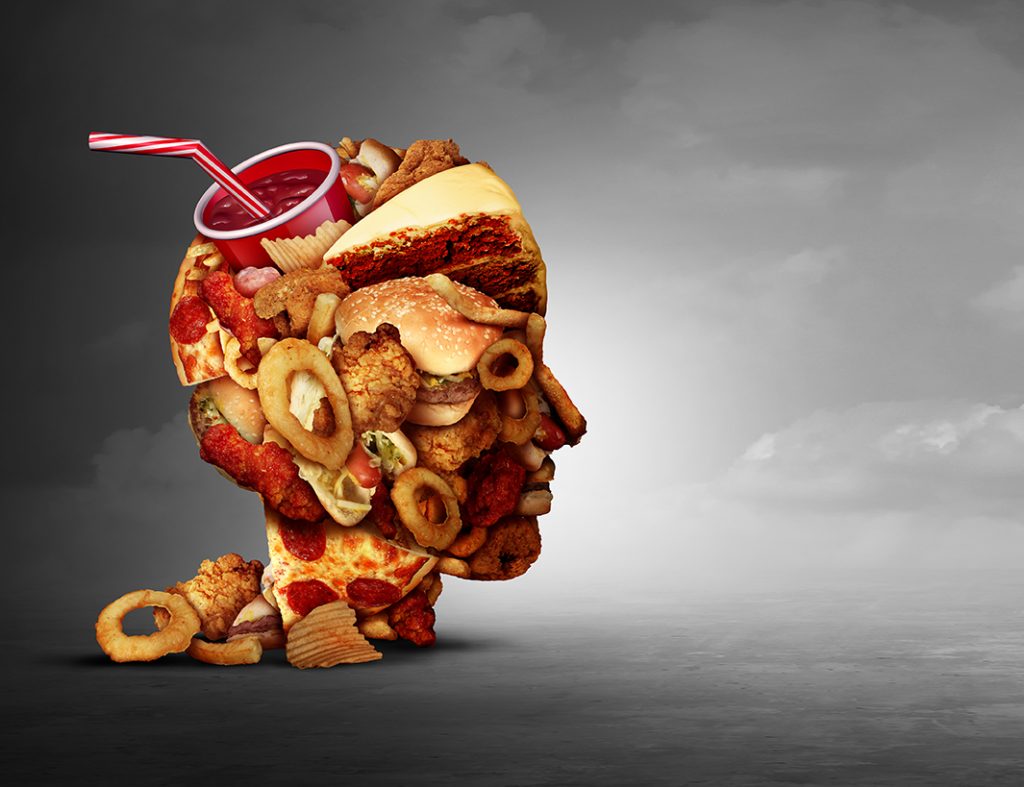
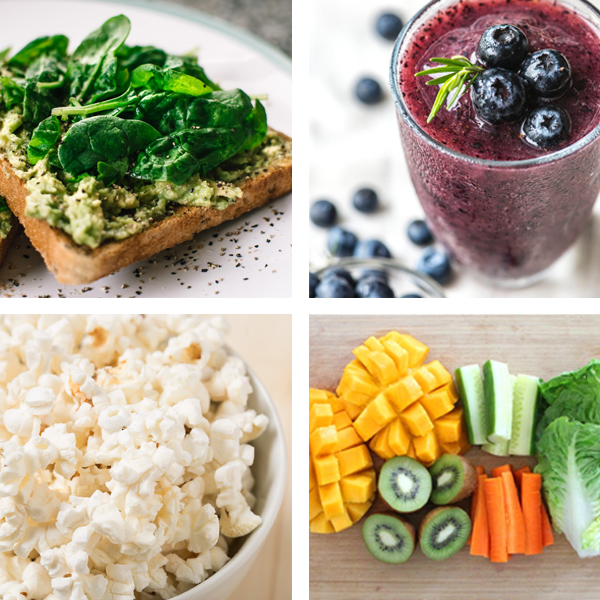
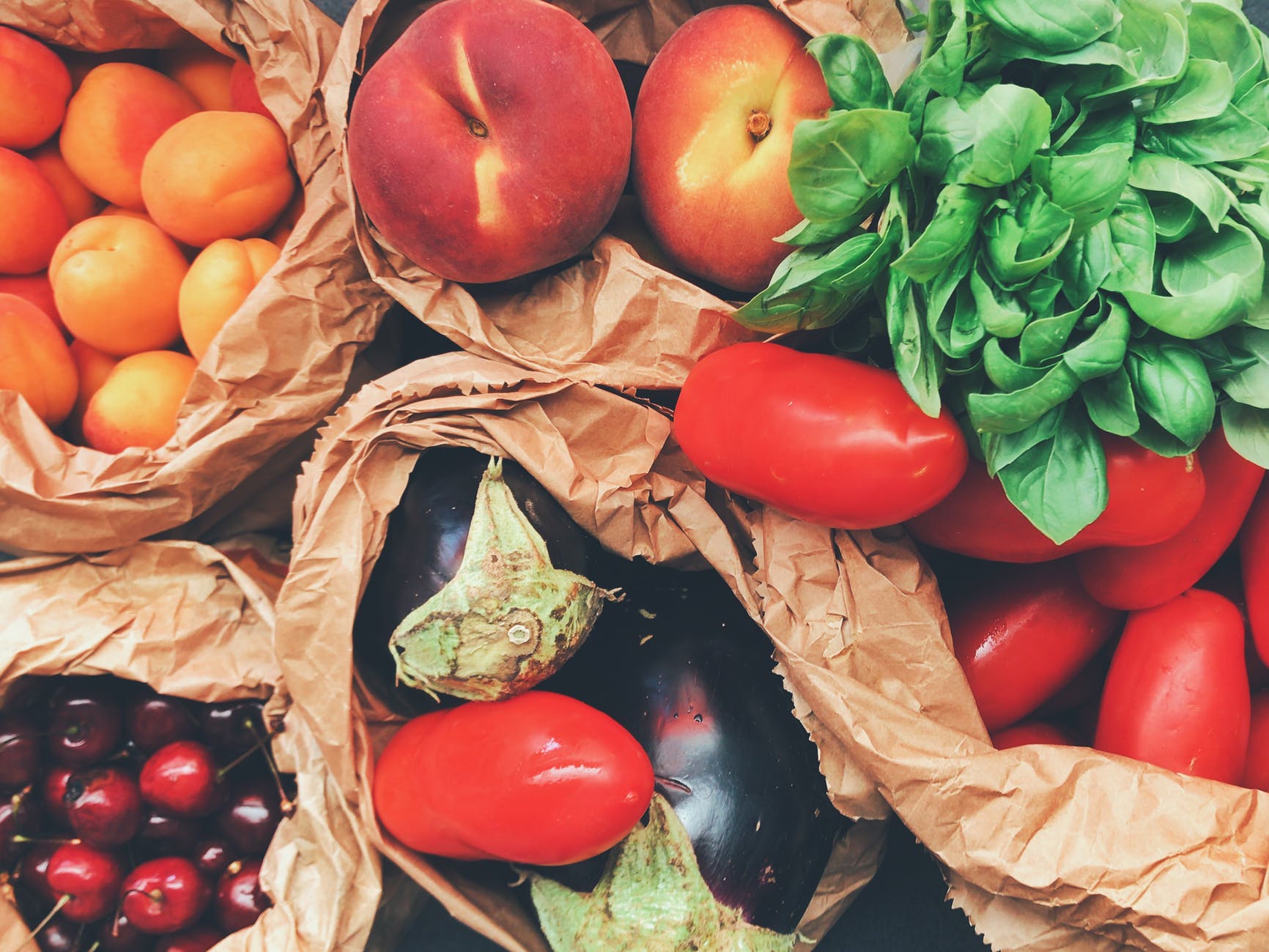

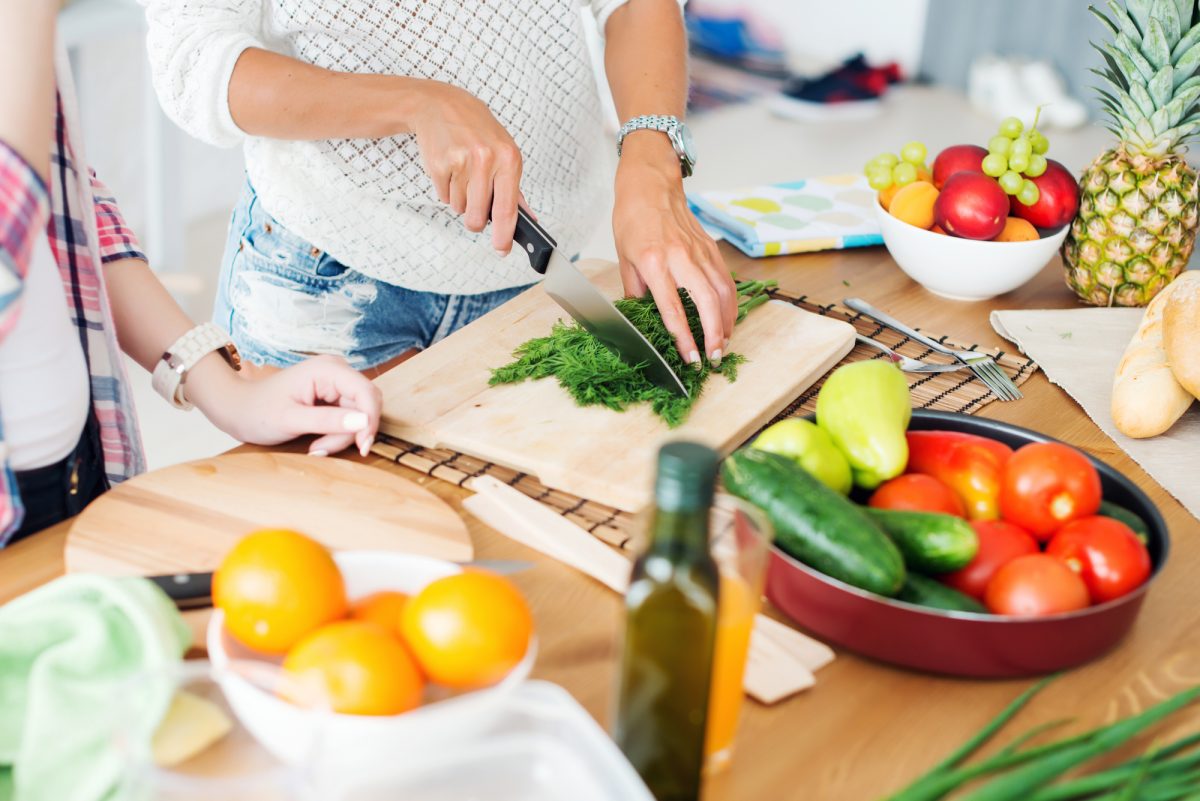

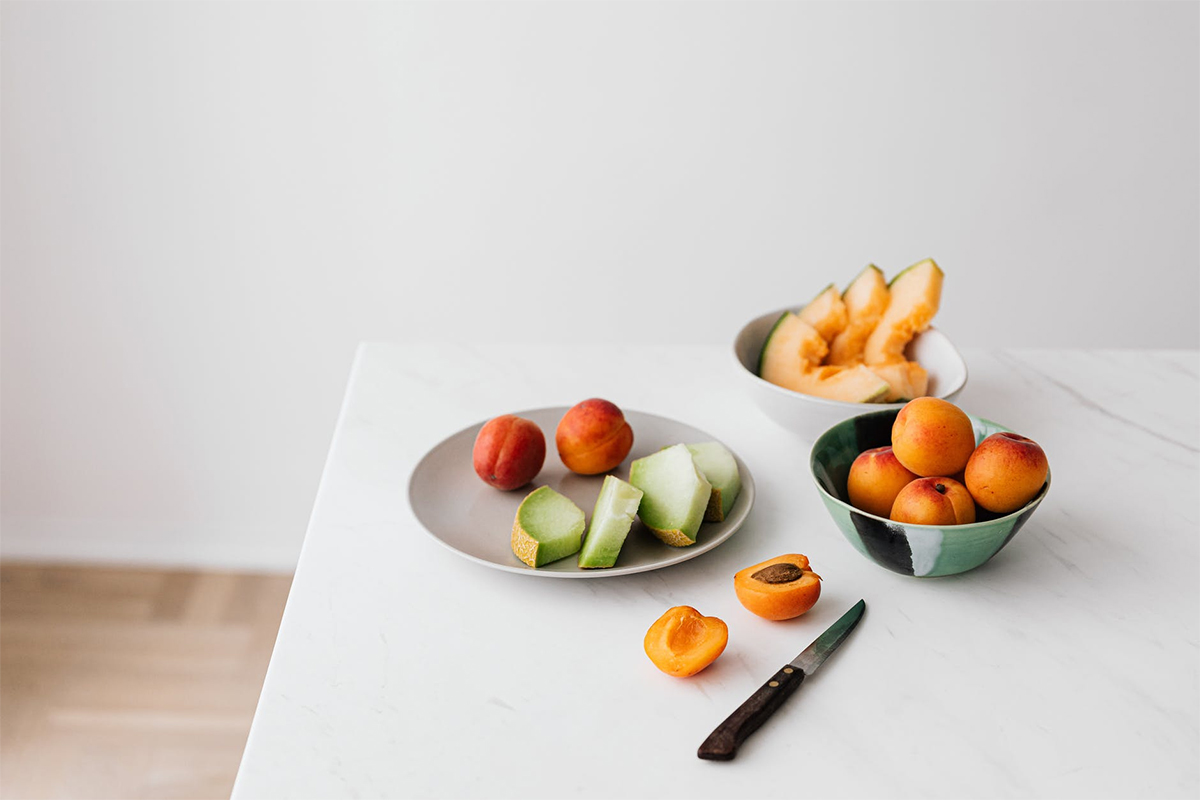
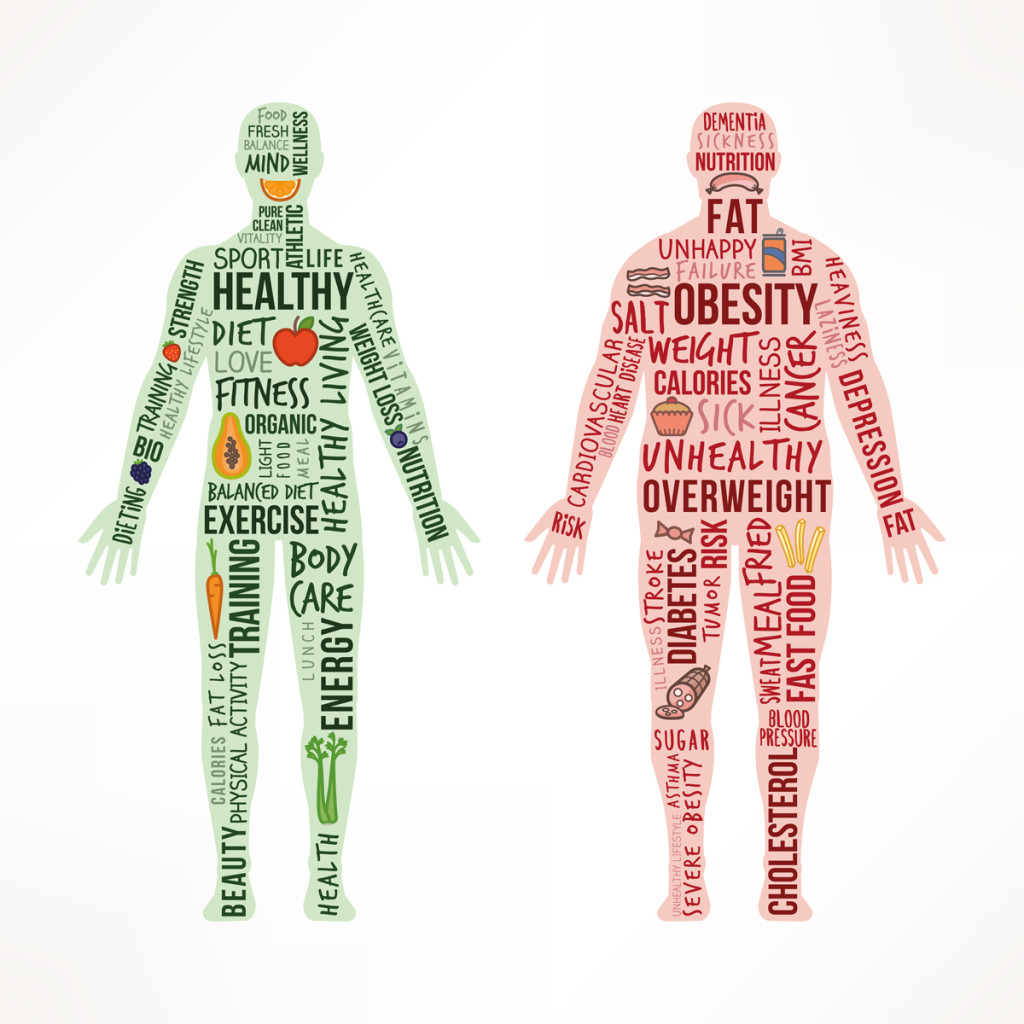
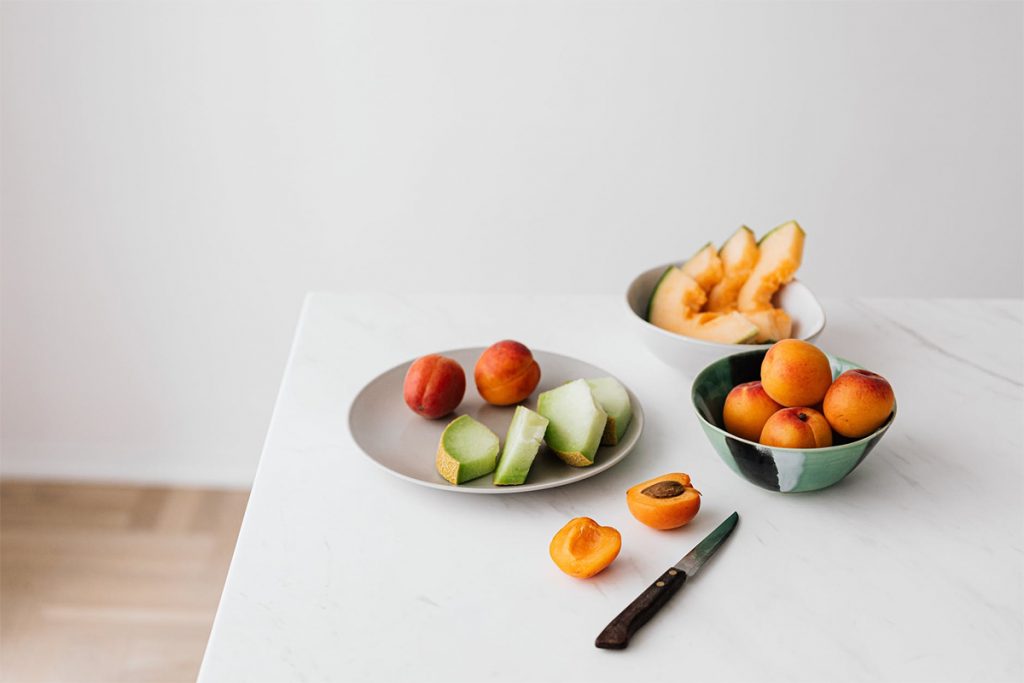 What-to-Eat Rx: Fresh, Whole, Inverse
What-to-Eat Rx: Fresh, Whole, Inverse